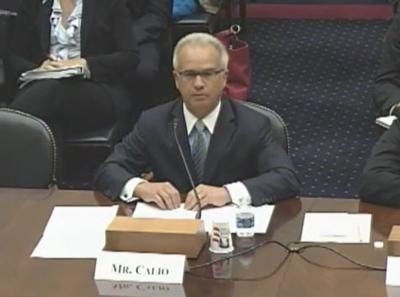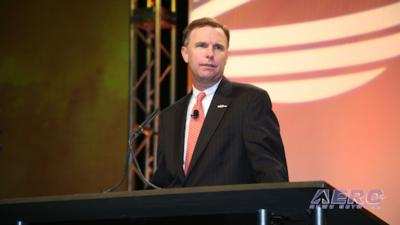Airlines Praise The Plan, Business Aviation Not So Much
The Trump administration released what is being called a "taxpayer first" budget on Tuesday, and the proposal would shift the ATC service provider function within the Federal Aviation Administration (FAA) to an independent, non-governmental organization beginning in 2021.

Airlines, through their trade association Airline for America (A4A), welcomed the news. "The President’s leadership on air traffic control reform will ultimately reduce federal spending, shrink the size of the federal government and reduce taxes for passengers,” said A4A President and CEO Nicholas E. Calio (pictured). “By prioritizing ATC reform in his budget, the President has taken a bold step that will lead to benefits for decades to come and maintain our role as the global leader in aviation.”
More than 50 other nations have reformed their air traffic systems to separate the service provider from the safety regulator. The results include increased efficiencies and enhanced safety. Under the proposal, the FAA would continue to oversee all safety regulations.
Separating the ATC service provider from the FAA will free the system from the government bureaucracy that has stood in the way of modernizing the infrastructure that manages the tens of thousands of flights each day that use the U.S. airspace. Moving our nation’s ATC system into the 21st century would deliver a host of benefits – including shorter flights, fewer emissions and fewer delays – all great news for the 2.2 million passengers that rely on the system each day.
However, the NBAA took a different view. “For several years, NBAA has said the public airspace belongs to the American public and should serve all Americans,” said NBAA president and CEO Ed Bolen in a statment. “The president’s budget takes the public’s elected representatives out of the equation and leaves it to a private board to ensure the public’s interest is being well served. We are troubled and concerned by this proposal and will review it closely as the legislative process moves forward.”
“With this budget, the president has made clear his administration’s plan to pursue a concept that has raised a host of concerns, not just among aviation stakeholders, but also among congressional lawmakers from both political parties, mayors from across the country, organizations from the political left and right, consumer groups and a majority of Americans,” Bolen (pictured) said.

“As the debate continues in Congress over FAA reauthorization and modernization of the nation’s aviation system, we will work with Congress to promote forward-thinking initiatives that preserve America’s aviation-leadership position and ensure the ATC system continues to serve all Americans in the decades to come.”
NATA President Martin H. Hiller also expressed concerns about ATC privatization. “Investment in our nation’s aeronautical infrastructure is just as important to our long-term economic prosperity as tax cuts and increased defense spending," Hiller said in a statment released to the media. "We cannot make the justification for ATC privatization a self-fulfilling prophecy by making cuts to important programs that need immediate funding. The proposed FAA budget would reduce spending on the modernization of our air traffic control system and continue what has been a six-year downward spiral in airport funding.
"NATA continues to have significant concerns over proposals to corporatize air traffic control with its potentially detrimental impact on general aviation and rural investment. Targeted budget changes, including clear and unambiguous exemptions from the impacts of sequestration and government shutdowns, would be more effective than potentially destabilizing the world’s safest, most complex air traffic control system. We urge Congress to continue to appropriately fund a modernization program that is delivering real benefits and to increase the investment in our airport infrastructure.”
(Source: A4A, NBAA, NATA news releases. Images from file)
 ANN FAQ: Follow Us On Instagram!
ANN FAQ: Follow Us On Instagram! Classic Aero-TV: Innovation By Avilution Pilots Care About Results
Classic Aero-TV: Innovation By Avilution Pilots Care About Results Aero-News: Quote of the Day (05.09.25)
Aero-News: Quote of the Day (05.09.25) ANN's Daily Aero-Term (05.09.25): Estimated (EST)
ANN's Daily Aero-Term (05.09.25): Estimated (EST) ANN's Daily Aero-Linx (05.09.25)
ANN's Daily Aero-Linx (05.09.25)




